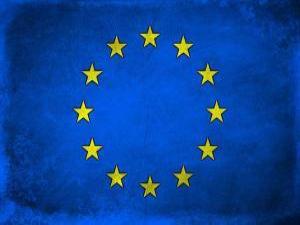
Northern Ireland has a veto over withdrawal from the EU, lawyers opposed to Brexit argued.
An exit would have a catastrophic effect on the peace process, Ronan Lavery QC said.
He claimed people in Northern Ireland have control over constitutional change following the 1998 Good Friday Agreement which largely ended republican and loyalist violence.
A cross-community group of politicians and victims campaigners is challenging the Prime Minister's ability to trigger Article 50 negotiations on an exit at the High Court in Belfast.
Mr Lavery said: "Sovereignty over constitutional affairs has been ceded. It is not the relationship, as it might once have been, between a dominant partner in a relationship and a submissive partner in a relationship.
"The people of Northern Ireland have control over constitutional change, it cannot be imposed upon the people of Northern Ireland.
"If that means that Northern Ireland could exercise a veto over withdrawal then I am (asserting) that is what Britain and Ireland signed up to when they signed the Good Friday Agreement."
Special provision has been made in that agreement governing whether Northern Ireland can become part of a United Ireland if the majority wish it.
Mr Lavery added: "The people of Northern Ireland are the sole entity which has sovereignty over any change in constitutional status and it may be that change in the constitutional status is something which Britain, or England more correctly, wishes to put into effect but it does not mean that it is not a change of constitutional status here."
He said: "Withdrawal from the EU could have a catastrophic effect on the peace process and that delicate constitutional balance which we have reached."
Prime Minister Theresa May has said she plans to begin negotiations with the European Union next year.
Former Stormont justice minister David Ford is among a cross-community group of politicians and human rights activists whose lawyers are taking the judicial review of her powers at Belfast's High Court.
Mr Lavery represents Raymond McCord, whose son Raymond McCord Jr was murdered by the loyalist Ulster Volunteer Force (UVF) in north Belfast in 1997.
Some 56% of Northern Irish voters backed Remain in the June 23 referendum but some unionist-dominated parts supported Leave.
Northern Ireland shares the UK's only land border with an EU state, the Republic of Ireland, and the British and Irish Governments have said they are keen to ensure there is no return to the hard borders of the past.
Mr Lavery added that under Brexit any move to create a United Ireland would be subject to the permission of the other EU member states that Northern Ireland should join the EU.
"That is a practical and illegal impediment to the nationalist aspiration for a United Ireland,"
Those supporting the legal action include: Green Party leader Steven Agnew; Social Democratic and Labour Party leader Colum Eastwood; senior Sinn Fein Stormont Assembly member John O'Dowd; former head of the Progressive Unionist Party Dawn Purvis; ex-Equality Commission member and disability rights activist Monica Wilson OBE and the Committee on the Administration of Justice human rights group.
They want to ensure the Brexit process complies with the rule of law, takes account of parliamentary sovereignty, protects progress made towards a more peaceful society and accords adequate weight to the democratic will of those in Northern Ireland who voted in the European referendum and in the poll on the Good Friday Agreement.
Mr Lavery said Northern Ireland has special status.
"It is a union of partners and we say that equal weight should be given to each partner in that union, to the views of each partner."
He said there had to be a check and balance on parliamentary sovereignty and, following the GFA, sovereignty over constitutional change had been transferred to the people of Northern Ireland.
"The one part of the UK which will be most affected by withdrawal is that part which shares a land border with the rest of the EU.
"But it is not simply the effect of the land border. The constitutional settlement which was reached in the GFA and in negotiations which led to the agreement is a delicate one and firmly based on partnership between two members of the EU.
"The Northern Ireland situation is a microcosm of the European project where the one aspiration of the founders of the EU was that 19th century notions of nationalism in whatever form it takes would become irrelevant, that borders would disappear, they would trade with each other and that crossing the border should be no more than the equivalent of crossing between one county council area to another, one administrative regime to another, and whatever side of the border you live on should be a matter of insignificance because you will be living in an impartial, fair, administrative regime subject to fundamental rights which are enshrined at a supra-national level within the EU."
He said his client, Mr McCord, was concerned that the withdrawal from the EU would be followed by repeal of the Human Rights Act and withdrawal from the Convention on Human Rights.


 Police investigating Arson Attack in North Belfast
Police investigating Arson Attack in North Belfast
 McIlroy honours omission came despite Stormont nomination
McIlroy honours omission came despite Stormont nomination
 Police seize ‘significant quantity’ of drugs following chase
Police seize ‘significant quantity’ of drugs following chase
 Woman dies in hospital after road crash in Co Fermanagh
Woman dies in hospital after road crash in Co Fermanagh